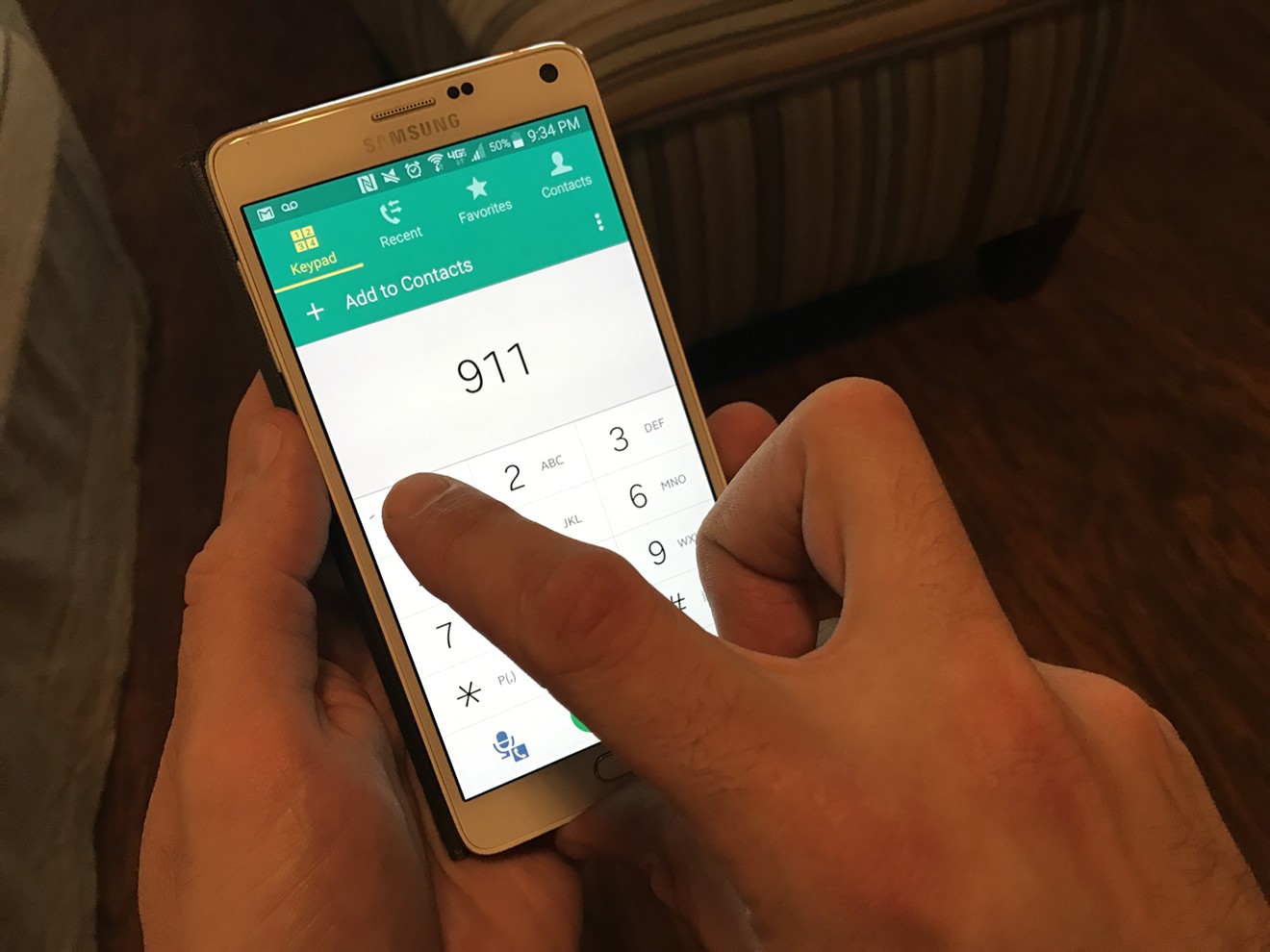Last week, a 6-month-old infant died after his babysitter used her cellular phone to call 911 three times without getting an answer. When someone picked up, the babysitter languished on hold for a half hour before getting assistance.
The City of Dallas labeled the issue as “ghost calls” from phones on the T-Mobile network, saying repeat, errant calls were clogging up the lines. Mayor Mike Rawlings initially said at a news conference that T-Mobile engineers were in Dallas working on the issue, implicitly blaming the carrier for the problems.
Now, the City of Dallas has gone back on solely blaming “ghost calls” and is facing questions about its 911 call center. Here is what we do and don’t know.
1. No one can say what the problem really is.
Sana Syed, public information office director for the City of Dallas, told the Observer that the issue is still under investigation. When asked again during a conference call with the press, she said: “We don’t know what went wrong yet.”
We spoke to representatives from the National Emergency Number Association last week to hear what the causes could be. Without knowing any specifics from Dallas,the representatives cite possible causes including hardware and software issues. There are many entities involved in running 911 calls, so the hardware and software of the 911 call center, its vendors and contractors need to be checked. If the software can’t talk to the hardware, or other software, glitches can result.
2. The cost for upgrading the 911 system is highly variable.
Bill Finch is director of Communication and Information Services, a city department that handles the city’s IT needs.
He says that, despite rumors, the Dallas 911 call center’s technology has been updated since the 1980s.
When questioned about upgrades, something the mayor is now talking about, he could not offer a plan or estimate. Finch said the price on the upgrade would vary depend on what pieces of hardware and software would be upgraded. The upgrade could cost anywhere between “several thousand to several million dollars.”
3. The city mislabeled the problem when they called them “ghost calls.”
What was once called “ghost calls" by the City of Dallas is now “abandoned calls.” According to a city news release, “Ghost calls happen when a person’s phone makes repeated calls to 911, unbeknownst to the person. Abandoned calls happen when a caller hangs up before reaching a 911 call taker.”
“Ghost call is a term that we created as we started seeing this symptom because we didn’t know what was causing it, we didn’t know where it was coming from,” said John Cheffy, the assistant director of CIS. “We needed some way to refer to it so we could continue the investigation. We created the term as a reference.”
Cheffy also can’t say for sure if every abandoned call is from T-Mobile. “The issue has been only related to T-Mobile calls as far as we can detect,” he said.
4. No one will say how many call takers are staffed at the 911 call center.
Jesse Reyes, deputy chief of the Dallas Police Department, says “safety reasons” for the public is why they can’t reveal the number. Later in the conference call, Syed said, “That could open us up to an attack. That’s why that’s not being released. We believe that information could compromise the safety of our 911 call takers.”
What they will say, however, is that 12 extra call takers were staffed this weekend. Reyes says they will continue with additional staffing until the problem is resolved.
5. On Friday, industry standard for 911 calls were met.
According to the National Emergency Number Association standard, 90 percent of 911 calls must be answered within 10 seconds and 95 percent within 15 seconds. According to a tweet sent out by Syed, 90.98 percent of 911 calls on Friday were answered within 10 seconds and 92.06 percent for Saturday.
[
{
"name": "Air - MediumRectangle - Inline Content - Mobile Display Size",
"component": "18855504",
"insertPoint": "2",
"requiredCountToDisplay": "2"
},{
"name": "Editor Picks",
"component": "17105533",
"insertPoint": "4",
"requiredCountToDisplay": "1"
},{
"name": "Inline Links",
"component": "18349797",
"insertPoint": "8th",
"startingPoint": 8,
"requiredCountToDisplay": "7",
"maxInsertions": 25
},{
"name": "Air - MediumRectangle - Combo - Inline Content",
"component": "17105532",
"insertPoint": "8th",
"startingPoint": 8,
"requiredCountToDisplay": "7",
"maxInsertions": 25
},{
"name": "Inline Links",
"component": "18349797",
"insertPoint": "8th",
"startingPoint": 12,
"requiredCountToDisplay": "11",
"maxInsertions": 25
},{
"name": "Air - Leaderboard Tower - Combo - Inline Content",
"component": "17105535",
"insertPoint": "8th",
"startingPoint": 12,
"requiredCountToDisplay": "11",
"maxInsertions": 25
}
]











